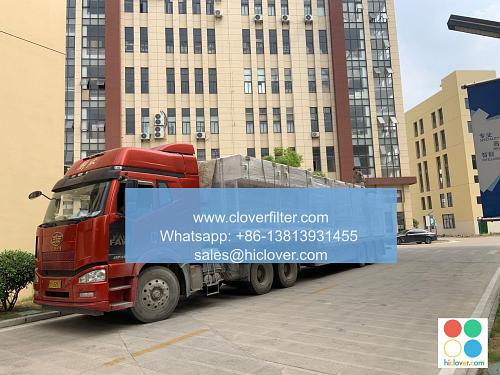Washington State Cleanrooms: The Use of Automatic Roll Air Filters in Boeing’s Aerospace Facilities

Washington State is home to some of the most advanced cleanrooms in the world, particularly in the aerospace industry. Boeing, one of the leading aerospace manufacturers, has several facilities in the state that require precise control over air quality to ensure the production of high-quality aircraft components. In this article, we will explore the use of automatic roll air filters in Boeing’s aerospace facilities in Washington State, highlighting their application areas, benefits, and importance in maintaining cleanroom standards.
Introduction to Cleanrooms and Air Filtration
Cleanrooms are controlled environments that are designed to minimize the presence of airborne particles, temperature fluctuations, and humidity variations. In the aerospace industry, cleanrooms are crucial for the production of sensitive components, such as electronics, avionics, and composite materials. Air filtration is a critical component of cleanroom design, as it helps to remove airborne particles, bacteria, and other contaminants that can compromise the quality of the products being manufactured. Air filtration systems, including high-efficiency particulate air (HEPA) filters and ultra-low penetration air (ULPA) filters, are commonly used in cleanrooms to achieve the required level of air cleanliness.
Automatic Roll Air Filters: A Game-Changer for Cleanrooms
Automatic roll air filters are a type of air filtration system that uses a rolling filter media to capture airborne particles. These filters are designed to provide a high level of air cleanliness while minimizing maintenance and operating costs. In Boeing’s aerospace facilities, automatic roll air filters are used to control the air quality in various application areas, including:
* Cleanroom assembly areas: where aircraft components are assembled and integrated
* Painting and coating areas: where aircraft surfaces are painted and coated with specialized materials
* Composite material manufacturing areas: where composite materials are produced and processed
* Electronics and avionics manufacturing areas: where sensitive electronic components are manufactured and tested
Benefits of Automatic Roll Air Filters
The use of automatic roll air filters in Boeing’s aerospace facilities offers several benefits, including:
* Improved air quality: automatic roll air filters can capture particles as small as 0.3 microns, ensuring that the air in the cleanroom is extremely clean
* Reduced maintenance costs: the rolling filter media design minimizes the need for frequent filter replacements and maintenance
* Increased productivity: by providing a consistent and reliable air filtration system, automatic roll air filters help to minimize downtime and increase productivity
* Enhanced product quality: by controlling the air quality in the cleanroom, automatic roll air filters help to ensure that the products being manufactured meet the highest standards of quality
Conclusion
In conclusion, the use of automatic roll air filters in Boeing’s aerospace facilities in Washington State is a critical component of their cleanroom design. These filters provide a high level of air cleanliness, minimize maintenance and operating costs, and help to ensure the quality of the products being manufactured. As the aerospace industry continues to evolve and demand higher levels of precision and quality, the use of automatic roll air filters will play an increasingly important role in maintaining cleanroom standards and ensuring the production of high-quality aircraft components. Aerospace cleanrooms, air filtration systems, and automatic roll air filters will continue to be essential components of the industry, enabling the production of advanced aircraft and spacecraft that meet the highest standards of quality and performance.

